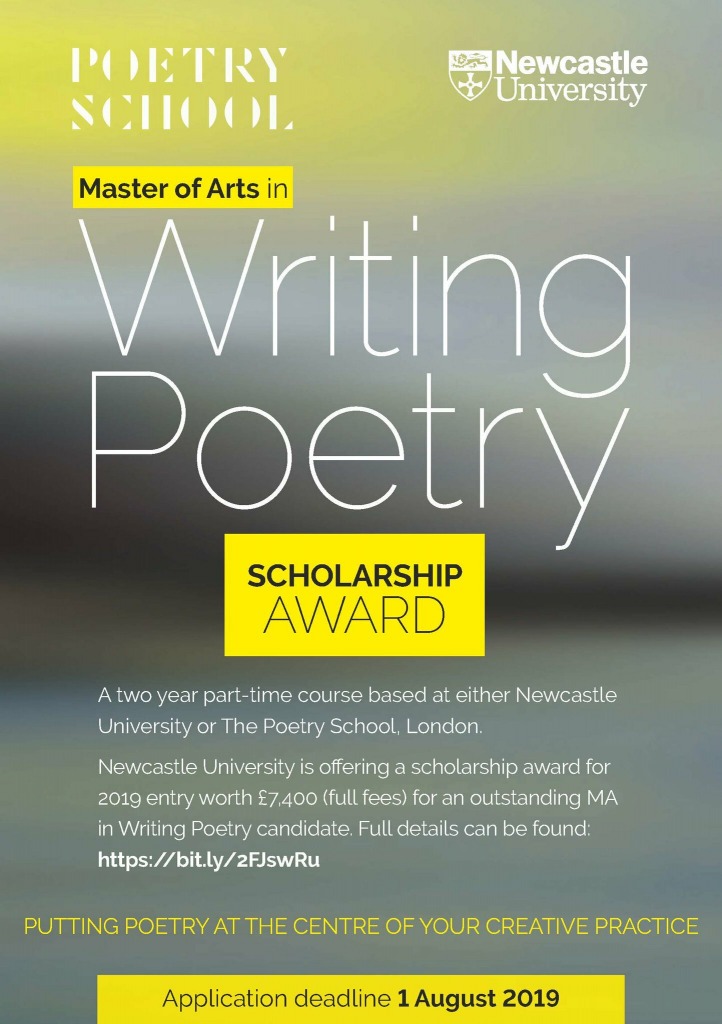Remember that feeling? The one where your heart beats in rhythm with a stanza you just crafted, or when a perfectly placed metaphor sends shivers down your spine? Yeah, me too. For years, poetry was my secret language, my quiet rebellion, my truest companion. But then came the big question, the one that often brings artists back to harsh reality: "How am I going to pay for this?"
I was just like many of you, perhaps. I loved writing. I dreamed of studying literature, honing my craft, being surrounded by people who understood the magic of words. But the cost of college? It felt like a mountain range I could never climb, especially when my chosen path wasn’t exactly known for its immediate high-paying job prospects. "Poetry," I’d hear, "is a hobby, not a career." And while I knew that wasn’t entirely true, the financial burden felt very, very real.
Then, one rainy afternoon, lost in a rabbit hole of internet searches (probably looking for obscure poets or the perfect synonym for ‘ephemeral’), I stumbled upon something that changed everything: the phrase "poetry scholarships."
The Myth-Busting Moment: "Poetry Scholarships? Are You Serious?"
My first reaction was pure skepticism. "Poetry scholarships?" I scoffed at my screen. "Surely that’s a typo. They must mean writing scholarships, general ones, where poetry is just one small category." I pictured dusty, ancient endowments for forgotten art forms, certainly not something for a young, aspiring poet like me.
But the more I clicked, the more I realized I was wrong. Gloriously, wonderfully wrong. There are indeed dedicated funds, grants, and scholarships specifically designed to support poets and students pursuing poetry or creative writing with a strong poetic bent. It wasn’t a myth; it was a hidden treasure. And I, a hopeful wordsmith, had just found a piece of the map.
This wasn’t just about paying for tuition. It was about validation. It was about recognizing that poetry isn’t just a pastime; it’s a serious discipline, an art form worthy of investment, and a powerful way to understand and interpret our world. Finding these scholarships felt like the universe was winking at me, saying, "Yes, your passion matters. Keep going."
Why Chasing These Golden Tickets Matters (Beyond the Bucks)
Of course, the most obvious benefit of a poetry scholarship is the financial relief. Let’s be honest, reducing student debt or making higher education accessible is a huge win. But believe me, the advantages stretch far beyond the monetary:
- Validation of Your Art: Receiving a scholarship specifically for your poetry is a massive confidence booster. It tells you that someone, somewhere, believes in your voice and your potential.
- Focus on Your Craft: With less financial worry, you can dedicate more time and energy to your studies and, most importantly, to writing. No more working extra shifts when you could be polishing a sonnet!
- Access to Community & Mentorship: Many scholarships come with connections to literary organizations, workshops, or even direct mentorship opportunities. Imagine learning from established poets, sharing your work, and finding your tribe.
- A Boost for Your Resume: Whether you pursue a career in writing, teaching, publishing, or something else entirely, a poetry scholarship on your resume speaks volumes about your dedication, talent, and ability to pursue your goals.
My Treasure Map: Where I Hunted for Poetry Scholarships
Once I got over my initial shock and excitement, the real work began: finding these opportunities. It felt a bit like a scavenger hunt, but with every clue, I got closer. Here’s where I looked, and where you should start your search too:
-
University and College Websites (Specifically Departmental):
This was my first stop. If you’re applying to a creative writing program or an English department, dig deep into their financial aid and departmental scholarship pages. Many universities have specific scholarships for students demonstrating talent in poetry. Sometimes they’re named after former professors or generous alumni. Don’t just look at the general financial aid page; go straight to the English or Creative Writing department’s section. -
Literary Organizations and Foundations:
This is where many of the truly dedicated poetry scholarships live. Think about organizations that celebrate and promote poetry. Some big names you might look into (or similar ones in your region):- Poetry Foundation: While they might not offer direct undergraduate scholarships in the same way, they are a hub for information and often list opportunities from other groups.
- Academy of American Poets: They support poets at various stages of their careers.
- Local and State Arts Councils: These often have grants or scholarships for artists, including writers, within their specific geographic areas. Don’t underestimate local opportunities!
- Specific Poetry Societies: Are you into Haiku? Sonnets? Slam poetry? There might be a society for it, and they might offer awards or scholarships.
-
Online Scholarship Databases (Be Specific!):
Websites like Fastweb, Scholarship.com, or Chegg Scholarships can be great, but you need to be smart about your search terms. Don’t just type "scholarships." Try:- "Poetry scholarships"
- "Creative writing scholarships"
- "Literary arts scholarships"
- "Writing contests for students" (many contests offer cash prizes that can function like scholarships)
- "English major scholarships with poetry focus"
-
Your High School Counselor or College Financial Aid Office:
These people are a goldmine of information. Your high school counselor might know about local scholarships you’d never find online. Once you’re in college, the financial aid office can point you towards institutional scholarships you might have overlooked. -
Poetry Journals and Magazines:
Some literary journals run contests with cash prizes, and while not explicitly "scholarships," winning one can certainly help fund your education or writing endeavors. Plus, getting published is a huge boost to your application portfolio! -
Google is Your Friend (But Be Smart):
Use precise search terms. Combine keywords like "poetry scholarships," "undergraduate poetry grants," "creative writing funding," plus your state or even specific university name. For example: "California poetry scholarships for college students."
Crafting Your Winning Verse: What Scholarship Committees Truly Look For
Okay, so you’ve found a few promising leads. Now comes the exciting (and sometimes nerve-wracking) part: the application. Applying for a poetry scholarship isn’t quite like applying for a general academic one. Here’s what I learned they really want to see:
-
Your Poetry (The Portfolio is King!):
This is, hands down, the most crucial element. They want to read your work.- Quality over Quantity: Send your absolute best pieces. Don’t just fill the page; curate a selection that showcases your range, your voice, and your skill.
- Show, Don’t Just Tell: Let your poems speak for themselves. Are you strong with imagery? Do you have a unique rhythm? Do you tackle complex themes? Make sure your portfolio demonstrates this.
- Follow Guidelines: If they ask for 3-5 poems, send 3-5. If they specify line limits or themes, adhere to them strictly.
-
The Personal Statement or Essay:
This is your chance to tell your story, in prose.- Your "Why": Why do you write poetry? What does it mean to you? How has it shaped you?
- Your Aspirations: How will this scholarship help you achieve your poetic and academic goals?
- Authenticity: Don’t try to sound like someone you’re not. Let your genuine passion shine through. This isn’t the time for flowery, overly academic language unless that’s genuinely your voice.
- Connect to Your Poetry: You can reference specific poems in your portfolio and explain their inspiration or significance.
-
Letters of Recommendation:
Choose recommenders who know your writing well. An English teacher, a creative writing instructor, or a mentor who has read your poetry would be ideal. Ask them well in advance and provide them with your resume, your personal statement draft, and a few of your best poems to help them write a strong letter. -
Academic Record (Yes, It Still Matters):
While your GPA might not be the sole deciding factor (especially compared to your portfolio), scholarship committees still want to see that you’re a dedicated and capable student. Strong grades demonstrate discipline and a commitment to learning, qualities that translate well to any field, including poetry. -
Uniqueness and Voice:
In a sea of applicants, what makes your voice stand out? Don’t be afraid to be original, to experiment, to tackle subjects that are meaningful to you. They’re looking for poets who have something fresh to say and a compelling way to say it.
My Top Tips for a Smooth Journey (Learned the Hard Way!)
I stumbled a few times during my own application process, so let me share some wisdom to save you some headaches:
- Read the Instructions. Then Read Them Again: Seriously, this is probably the most common mistake. Don’t assume anything. Every scholarship has specific requirements. Missing one tiny detail can disqualify an otherwise perfect application.
- Proofread Everything. Twice. Then Ask a Friend: Typos and grammatical errors are the enemy of a poetry application. Your work is about precision with words; your application should reflect that. A fresh pair of eyes will catch things you’ve overlooked.
- Start Early, Finish Early: Deadlines creep up fast. Give yourself ample time to select your best poems, write and revise your personal statement, and gather recommendations. Rushing leads to stress and mistakes.
- Tailor Each Application: Don’t use a generic personal statement for every scholarship. Research the organization or individual funding the scholarship. Why are they offering it? How does your passion and work align with their mission?
- Keep a Spreadsheet: Track deadlines, requirements, submitted materials, and contact information for each scholarship. This will save your sanity!
- Don’t Get Discouraged: You won’t get every scholarship you apply for. That’s okay. See each application as practice, a chance to refine your portfolio and personal statement. Keep trying! Your voice is worth fighting for.
Beyond the Check: The Unexpected Gifts of the Poetry Scholarship World
I did end up securing a few scholarships that significantly eased the financial burden of my education. But what I remember most vividly aren’t the deposit slips; it’s the sense of belonging, the feeling of being seen.
Through the application process, I refined my understanding of my own poetry. Winning, even just a small amount, opened doors to local poetry readings and workshops I might not have attended otherwise. I met incredible people – fellow poets, mentors, and professors – who became part of my creative journey. I learned that the world of poetry isn’t just about solitary writing; it’s a vibrant, supportive community.
Your Words, Your Future: Go Forth and Apply!
So, fellow wordsmiths, if you’re standing at the crossroads of passion and practicality, wondering how you can pursue your love for poetry without drowning in debt, know this: poetry scholarships are real. They are out there, waiting for voices like yours to discover them.
It takes effort, persistence, and a belief in the power of your own words. But if your heart beats for rhythm and rhyme, for metaphor and meaning, then this journey is worth every step. Start searching, start writing, and start believing that your poetic dreams are not just dreams, but a tangible future waiting to be funded.
Go on. The world needs your poems. And there are people out there ready to help you share them.



